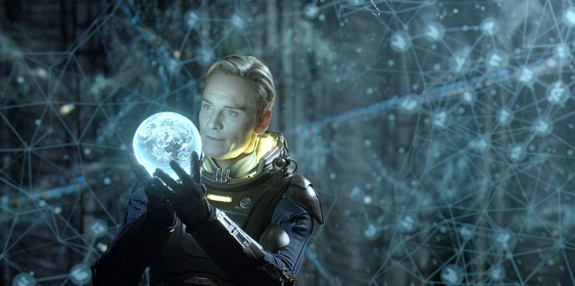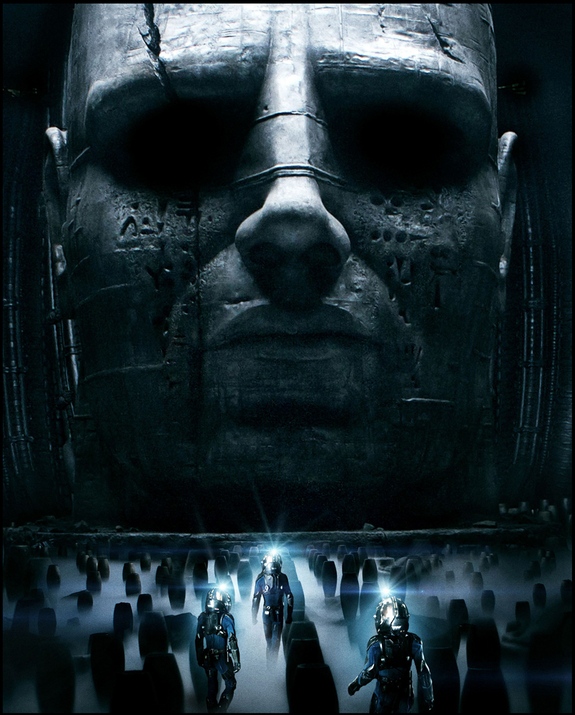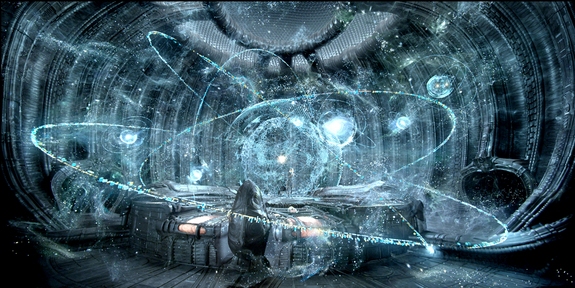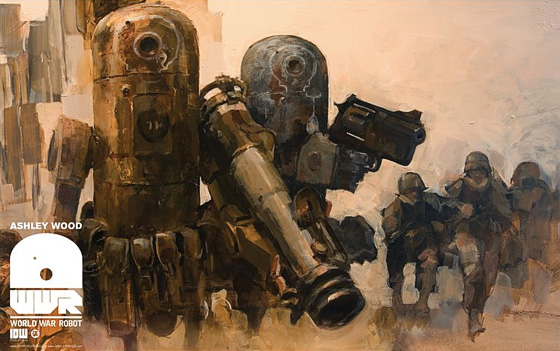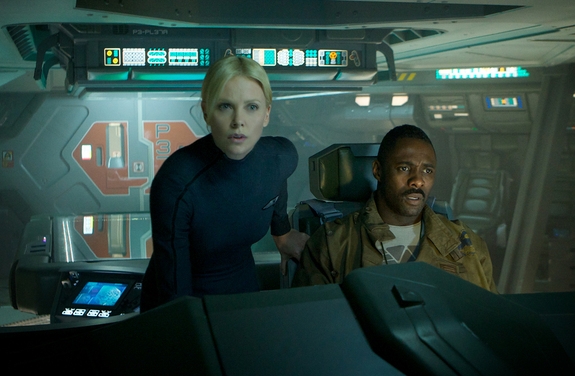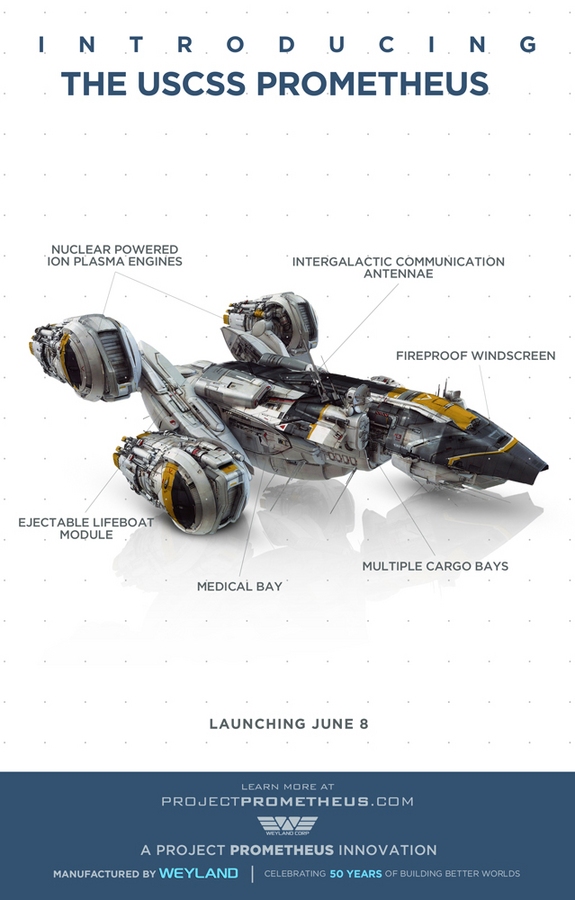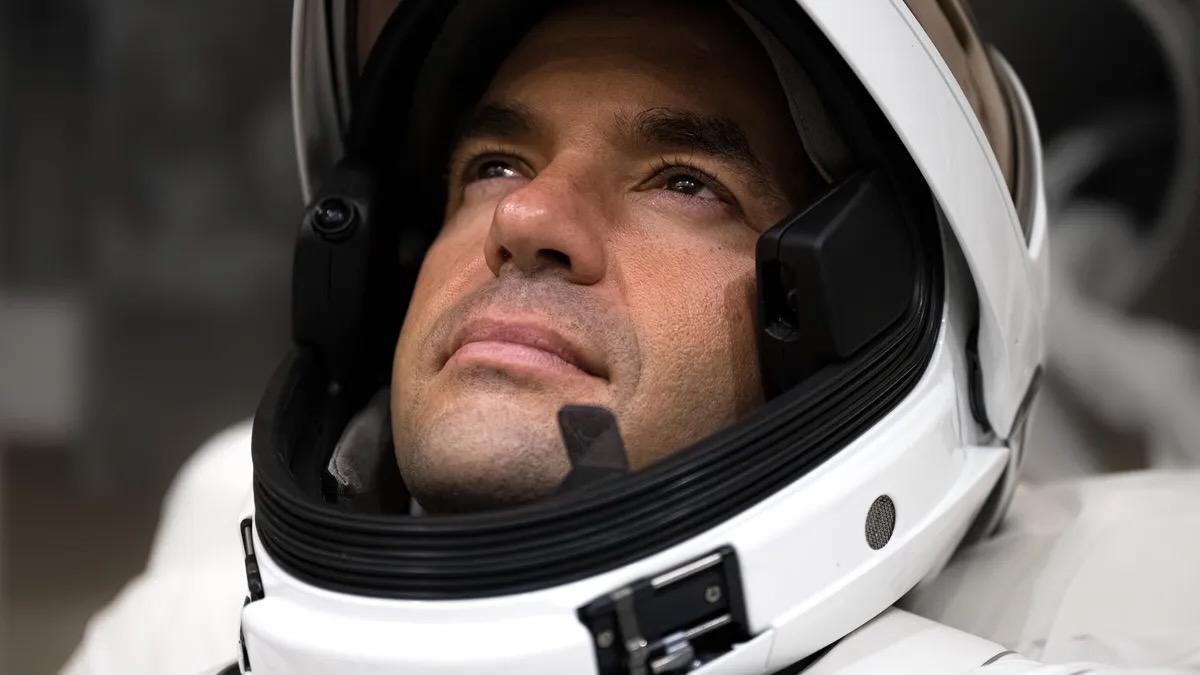'Prometheus' Writers Talk 'Alien' Origins, Comics & Reboots
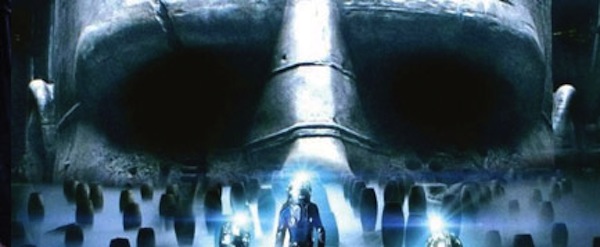
This Friday (June 8), "Prometheus" makes its U.S. premiere, bringing Ridley Scott's long-awaited "Alien" prequel to theaters and, if all goes well, kick-starting a brand-new franchise based on the universe he first introduced to audiences way back in 1979.
The new film is co-written by Damon Lindelof ("Lost," "Star Trek") and Jon Spaihts ("The Darkest Hour"), who spoke to Newsarama in London a day after "Prometheus" premiered in the U.K. The pair discussed the origins of the script and why "Prometheus" isn't your normal "prequel" story by any means, and also offered some updates on a few other projects on each of their plates these days, including the "World War Robot" movie and a reboot of "The Mummy" franchise.
Oh, and Lindelof told us what we can expect to see from him on the comics side of things down the road, too.
Newsarama: The entire "Alien" franchise is steeped in so much mythology, and "Prometheus" adds even more back-story to universe of these films. How much of the mythology in "Prometheus" did you two create, and how much has been there from the start? [Photos: Scenes from "Prometheus"]
Jon Spaihts: Obviously, what exists in the prior films was always a guide to us and was the bedrock on which we were building, but when it came to this film in particular, when the project began, they —meaning the studio and Ridley's company — did not have a particular notion of what the story would be. They wanted to go back before "Alien" in the "Alien" universe and tell a new story... to plant a new seed. Everything after that is stuff we made up. [laughs]
Damon Lindelof: I think that Ridley obviously has spoken over the years of his own curiosity, asking things like, what's the story with the space jockey? As a fanboy, I think for both Jon and I this was such an interesting thing. We were like, "You mean you don't know? That's up for grabs?" [laughs] So this was an opportunity for us to sort of write fanfic, for lack of a better word. When I read Jon's draft, I was sort of like, "Oh, this is a very, very compelling idea."
I had always imagined that there were these ginormous, elephantine aliens that were just in the wrong place at the wrong time and got overtaken by these xenomorphic parasites, but what if that's not what it was? What if there was a little bit more to it? The idea that ended up being "Prometheus" didn't need to be a strict connection of the dots from this story to the original "Alien," but [after you see "Prometheus"], when you see "Alien" and the Nostromo comes across that derelict ship, you have a context you didn't necessarily have before in terms of these things that are not innocent bystanders, but are in fact progenitors of the fate that befell them. I thought that was a very, very exciting and unexpected take on the franchise, and obviously that became the foundation upon which the whole movie was built.
Breaking space news, the latest updates on rocket launches, skywatching events and more!
Spaihts: It's what pulled us away from prequel territory. Obviously, the great mystery of "Alien" is where did all of this come from and who was the big guy in the chair? That's where we're going to begin with "Prometheus." But it's a fierce problem for a storyteller. Here's a 12-foot-tall, elephant-headed giant, so what are you going to do, write a movie about the elephant-headed giants? Who's going to watch that?
Lindelof: I would watch that...
Spaihts: [laughs] Well, certain die-hard nerds would watch it, but it's hard to make people care about human characters they can relate to directly, let alone investing in characters so strange. So the only way I thought to make that compelling was to ensure that the story of "Prometheus" was deeply connected to our own story, and that the question of who these beings were would tie in shockingly and unexpectedly to questions of who we were ourselves. [10 Alien Encounters Debunked]
Nrama: There always seem to be fantastic director's cuts and extended editions of Ridley Scott's films that offer some additional story elements to the movie. How much did original script for "Prometheus" change from what we see on the screen?
Lindelof: In the process of making a movie, there's always stuff that ends up on the cutting-room floor. But in the case of "Prometheus" vs. something like "Blade Runner" — where there's material that creates an entirely different interpretation of the film so the movie that has origami unicorns in it will basically lead you down a different path in terms of "oh my god is he a replicant" — there isn't anything like that in "Prometheus." There isn't a cut of the movie that is more definitive.
That being said, there's stuff on the cutting-room floor that probably deserves to stay there, because Ridley didn't want it in the movie. At the end of the day, whatever Jon and I bring to the table as writers is all funneled through Ridley's vision. This is the world he created and we're just invited to play in it.
Spaihts: The story is driven and modified by him every day, every step of the way. He's a fountain of ideas and constantly tinkering, so as much as we might sit in a theater and say, "That's Jon's section" or "That's Damon's section," it's all Ridley's.
Nrama: Going into the writing phase, was there a directive to not link this film directly to "Alien," and leave room for a new franchise? How did you approach the story, knowing that you were expected to create a prequel that wasn't a true prequel, but something that didn't reboot things, either?
Lindelof: I think we were always looking at it in terms of the result of this movie being that it will have two kids. One of those kids is going to be "Alien," and the other kid will be its own sort of genetic, original line, and that child — like Cain and Abel — is going to go off and have an entirely different set of its own kids and adventures that will feel like they are of the same universe. [10 Best Sci-Fi TV Shows of All Time]
There's a particular feel to this universe in terms of the future that Ridley has designed and the characters that populate it. In terms of what the storytelling can be and the thematics are, this line is more interested in dealing with these larger, mythological constructs. And when we say mythology, we mean the essential, Greco-Roman mythology — the creation myths that involve gods that walk amongst us and meddle with us, versus a deity that started existing 2,000 years ago that's something we pray to, but isn't in a conversation with us.
Spaihts: Yeah, it's not the abstract divinity of the monotheisms. The gods of Egypt and Greece meddled and were jealous and impetuous and fickle...
Lindelof: They sound like screenwriters...
Spaihts: [laughs] ... Or screenwriters' bosses. But those were the gods of the mythology that we worked up. From the very beginning, we wanted as much runway as we could leave to make it possible to tell more stories in this space, but we also needed to tell a story that stood on its own feet and delivered a respectable feeling of completion at its close.
Nrama: The technology used by the characters plays such a big part in the film. Where do you find inspiration for the technology of "Prometheus?"
Lindelof: I think a big part of it is just Ridley’s obsession with technology. He has an amazing production designer, Arthur Max, and for him, it’s not just how everything looks, but it has to have a real functionality to it. When you walk on the set, it’s not just computer screens running fancy data — they’re actually hooked up to hard drives, and people can operate them. So on a writing level, you basically say, "There’s a lot of flashing lights here, and there’s a hologram of a map here," but you leave the design work to the designers.
You can read the rest of the interview at SPACE.com's sister site, Newsarama.
This story was provided by SPACE.com's sister site Newsarama. Follow SPACE.com for the latest in space science and exploration news on Twitter @Spacedotcom. We're also on Facebook and Google+.

